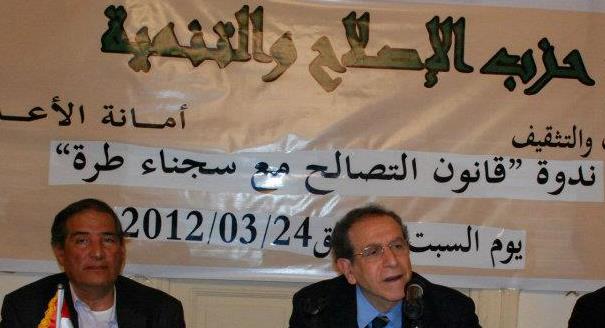This resource was published on 09/16/2010 and is not updated to reflect changing circumstances.
The Reform and Development Party falls on the liberal side of the spectrum. Starting as a splinter from the Democratic Front in 2009, it was not allowed to register officially until May 2011, but remained active in the interim. The party remained aloof concerning alliances in the 2011 parliamentary elections, joining neither the Democratic Alliance nor the Egypt Bloc.
Major Party Figures
Ramy Lakkah: President
Anwar Tal’at Esma’t Sadat: Vice President
Background
The Reform and Development Party, a relative newcomer to Egypt’s political scene, was launched in January 2009 by Anwar Tal’at Esma’t Sadat, a nephew of former President Anwar Sadat, after he defected from the Democratic Front Party. The Political Parties Committee rejected his application for legal status in July 2010. Rather than appealing the decision, Sadat started lobbying for a complete overhaul of the committee’s structure to prevent it from functioning as an instrument of the National Democratic Party (NDP) and custodian of the regime’s interests. The party was legalized on May 21, 2011 after the 2011 uprising. In June 2011, the Reform and Development Party merged with the Our Egypt party led by Ramy Lakkah, and Lakkah became the party’s new president.
Party Platform
Political Issues
- Fostering unity among Egyptians and encouraging the engagement of all citizens in the political process
- Creating an independent supervisory committee to ensure free and fair elections
- Establishing oversight mechanisms to monitor corruption in governing institutions
- Establishing a clear separation between the religious and political realms
Socioeconomic Issues
- Promoting economic development through free-market policies
- Increasing the economic opportunities available to all citizens, while alleviating poverty and injustice
- Supporting small-scale development projects and microfinance initiatives that benefit local communities
Foreign Policy Issues
- Opposing the normalization of diplomatic and economic relations with Israel




